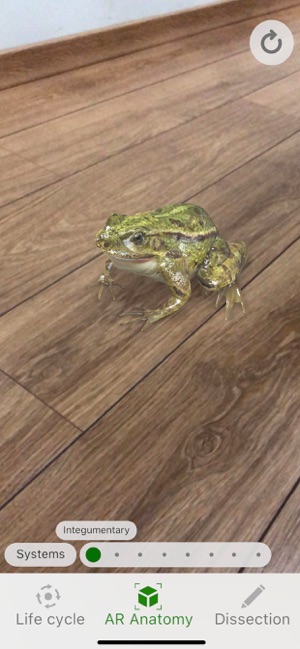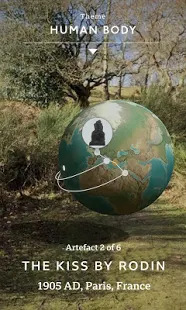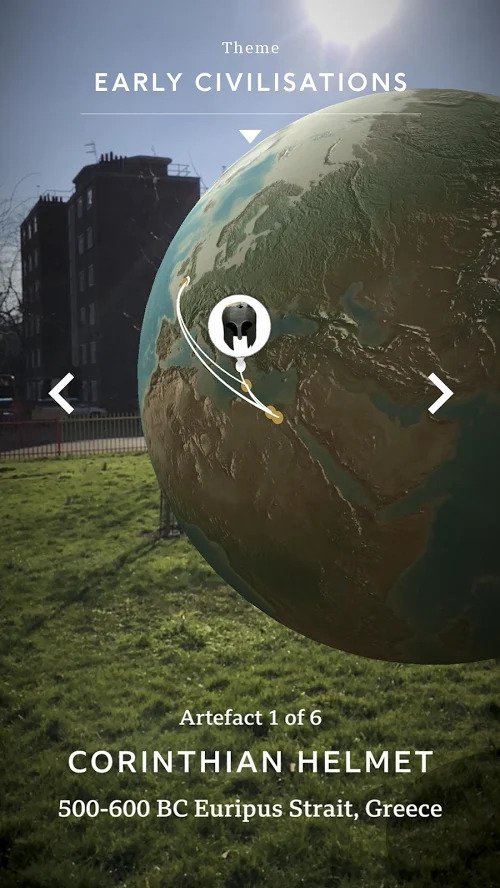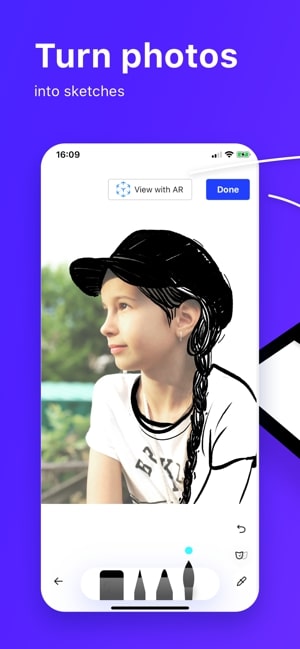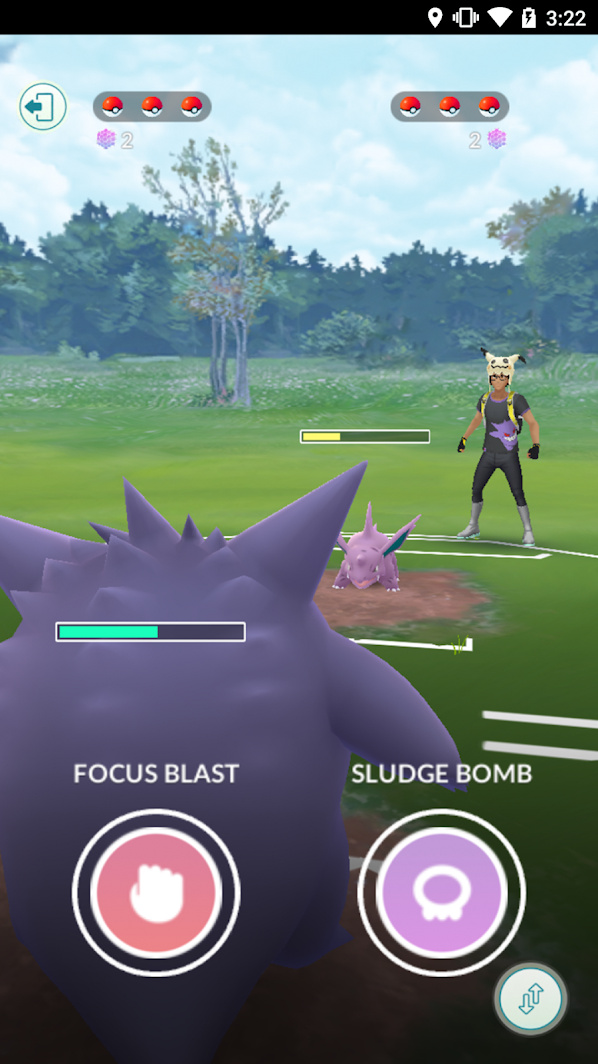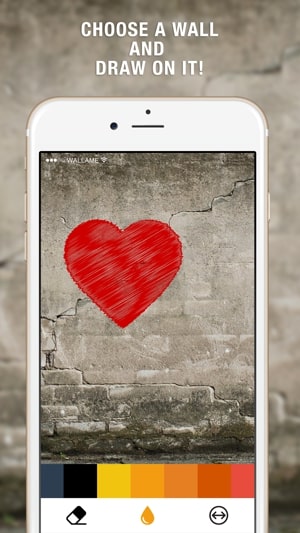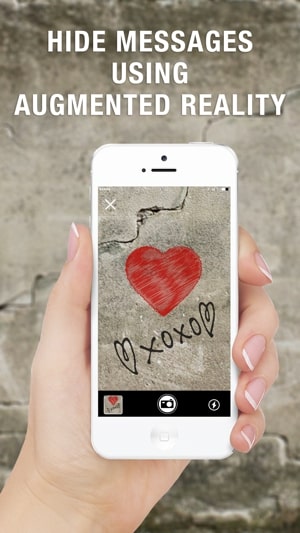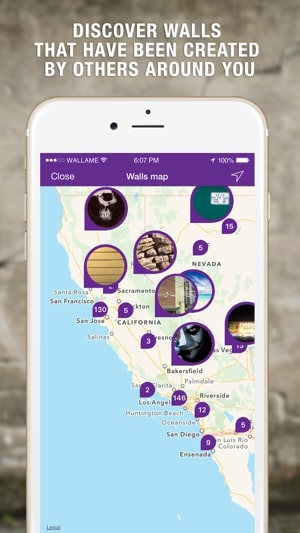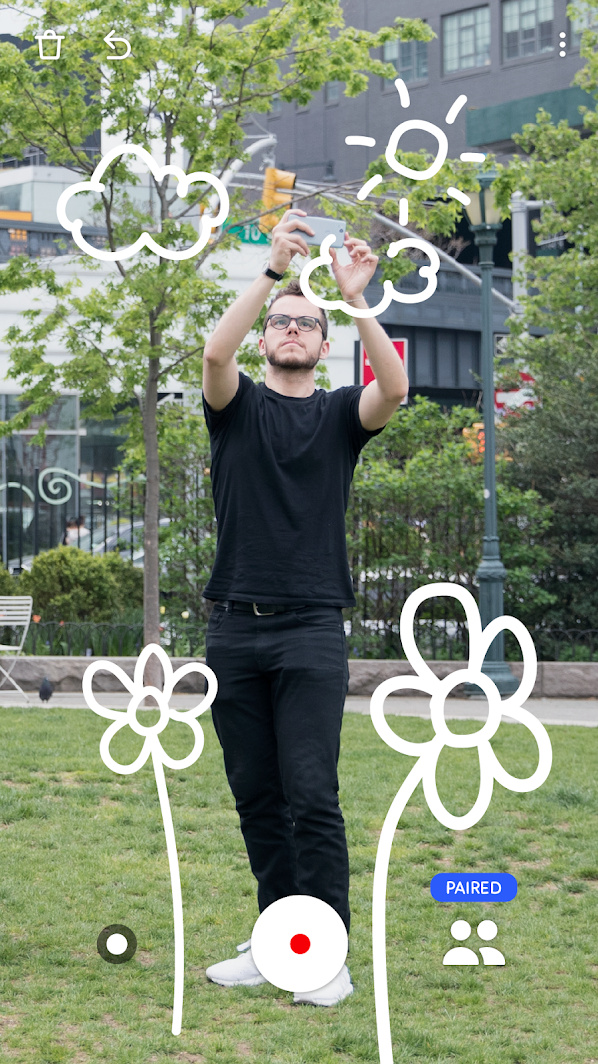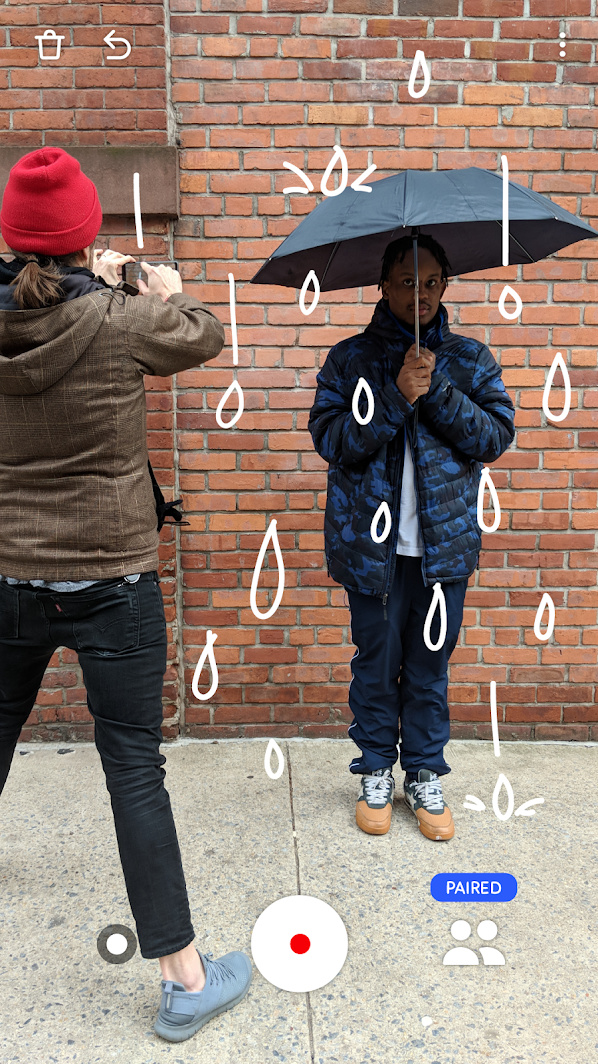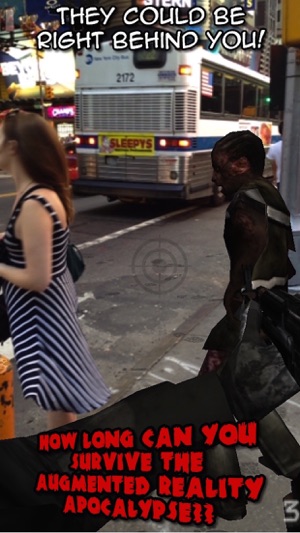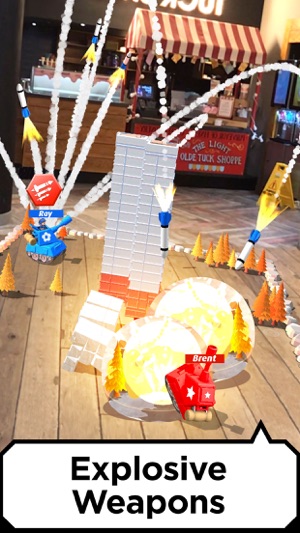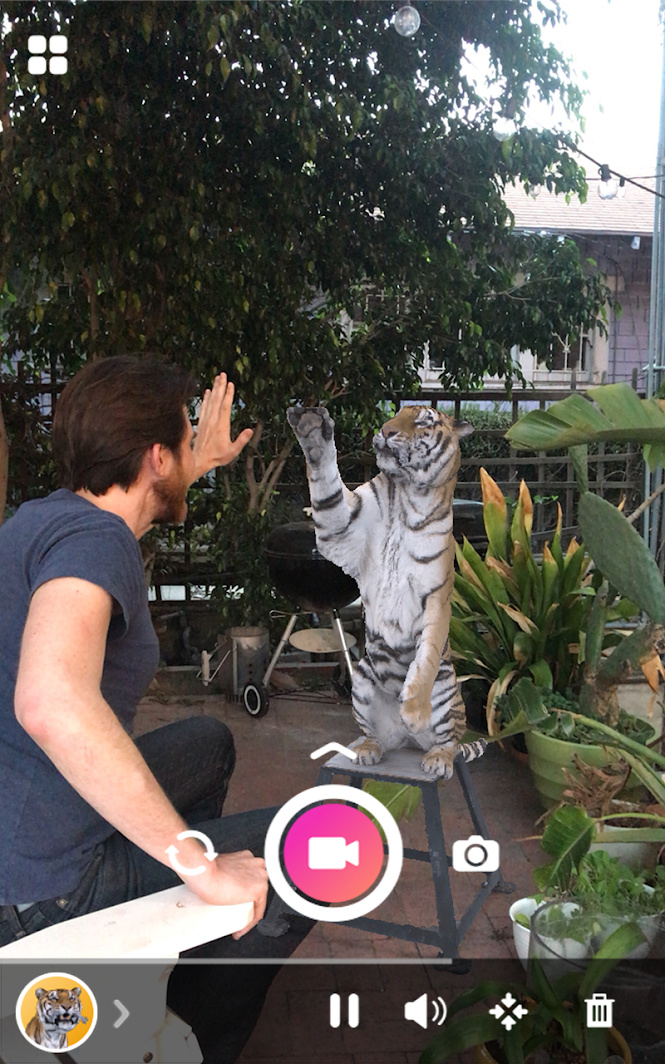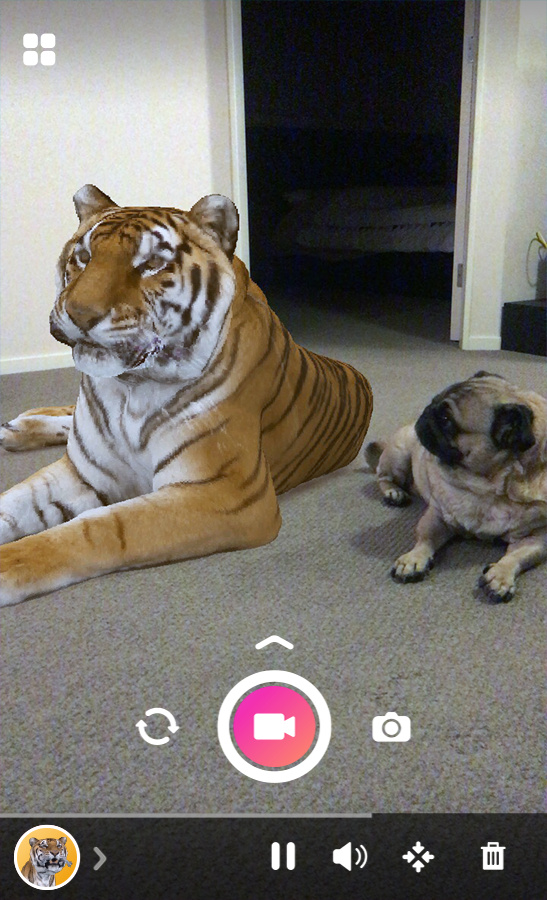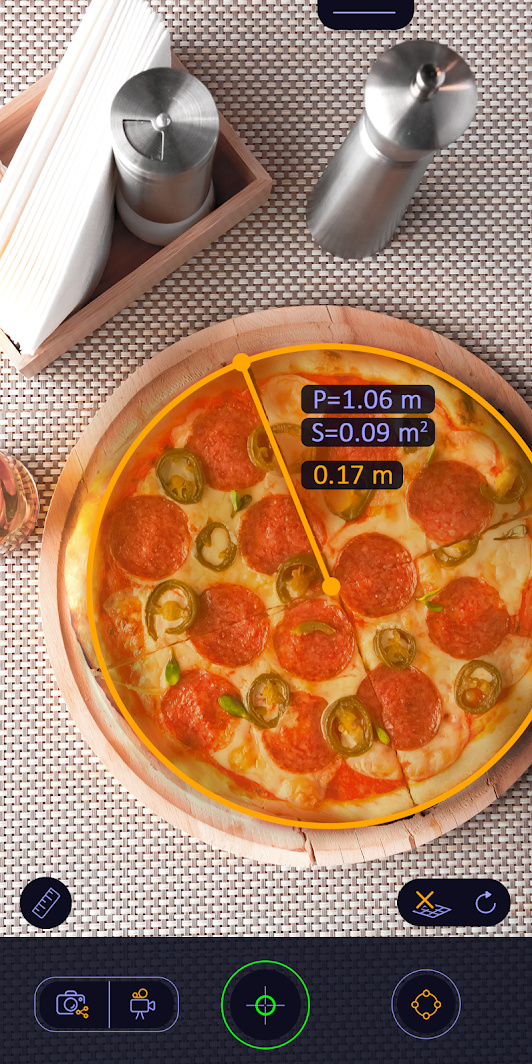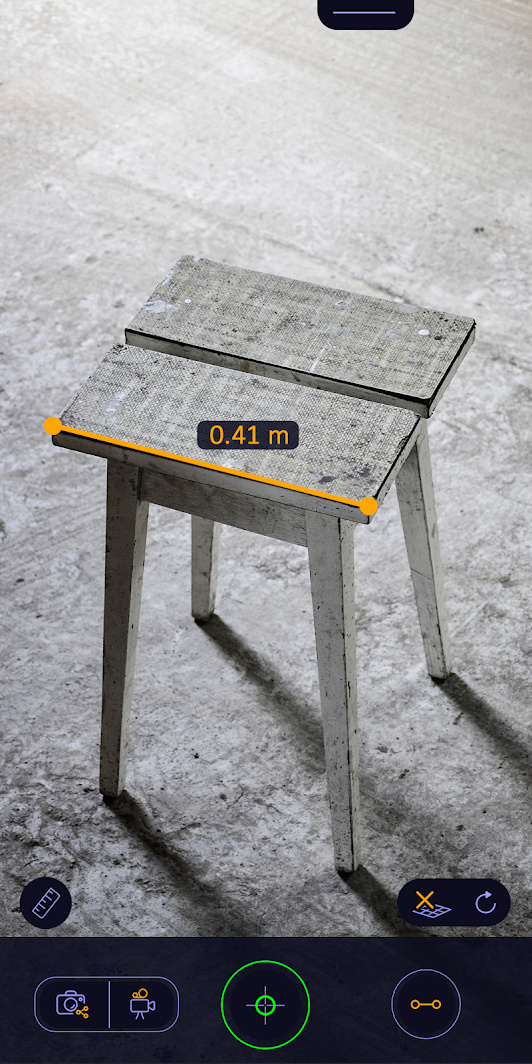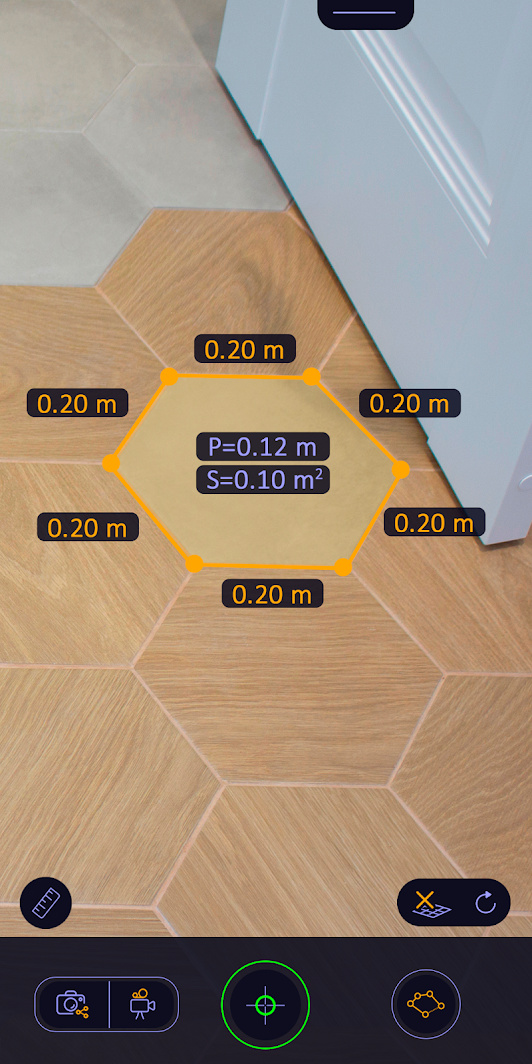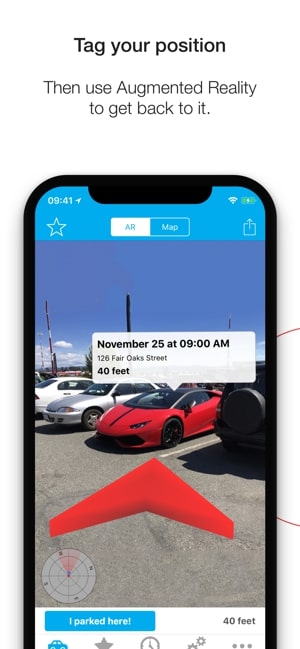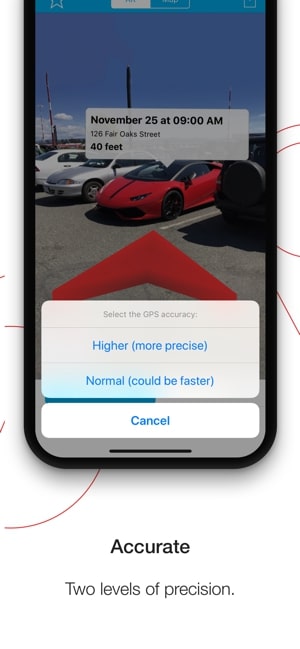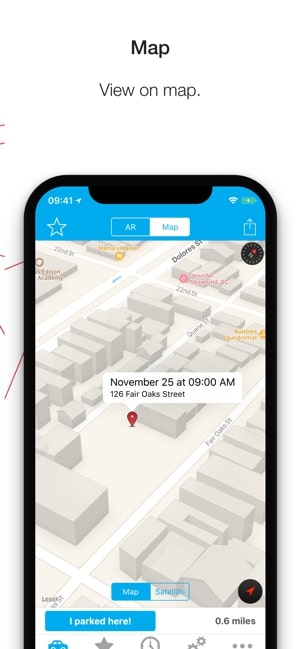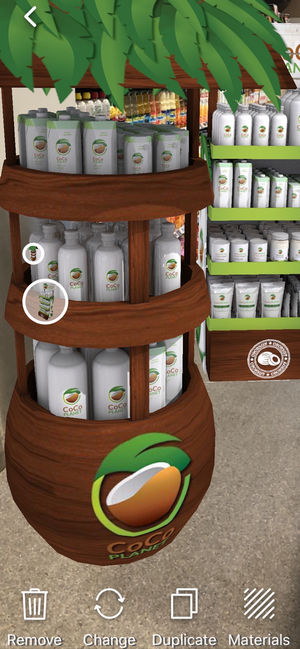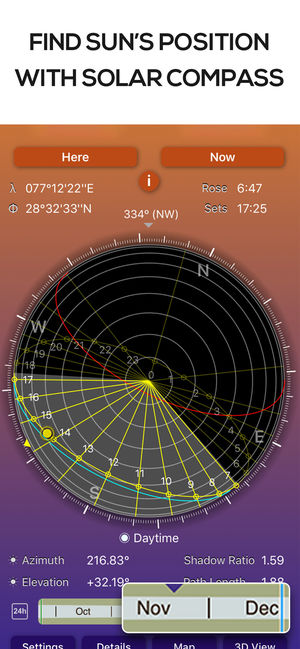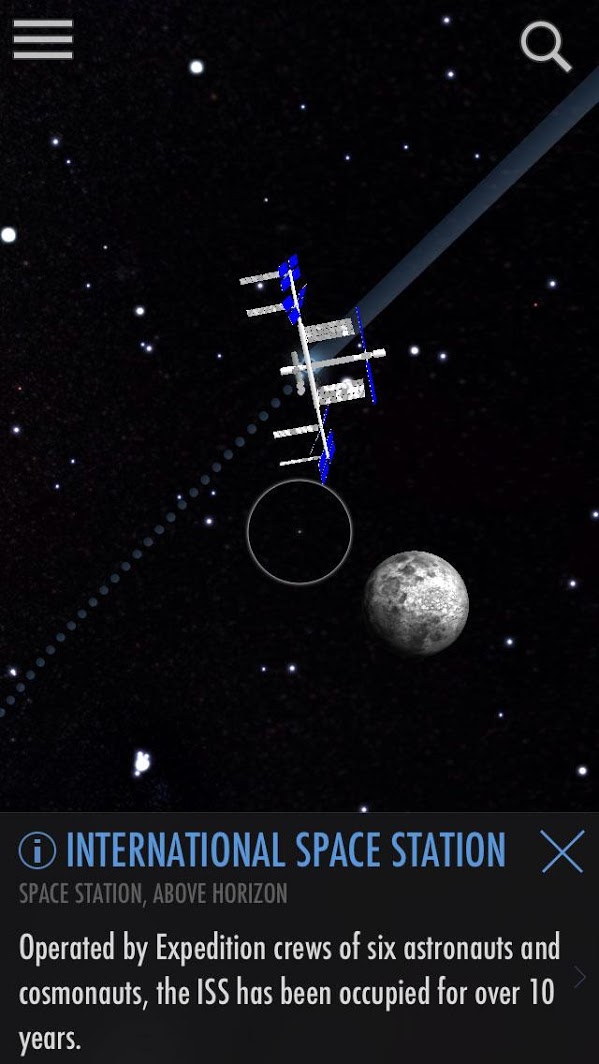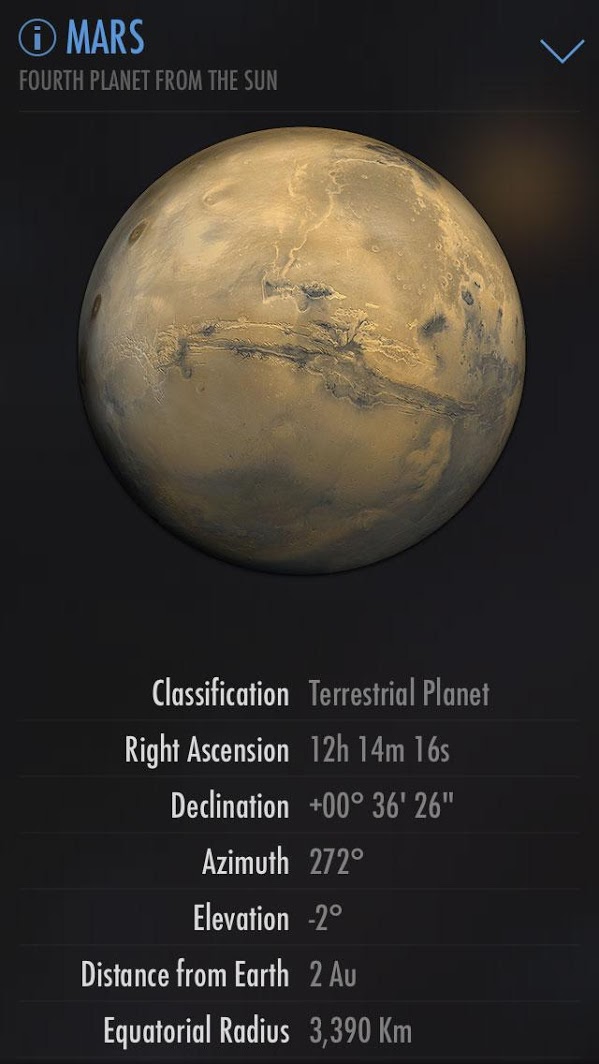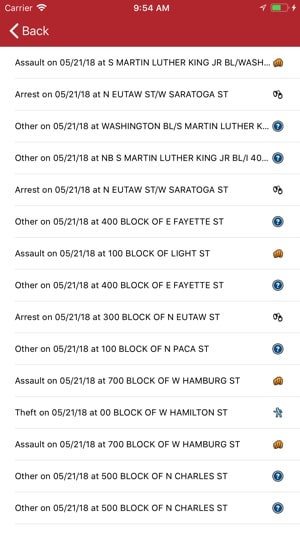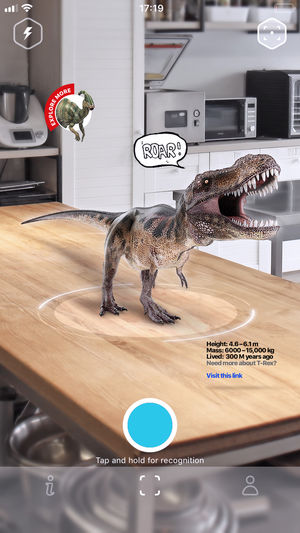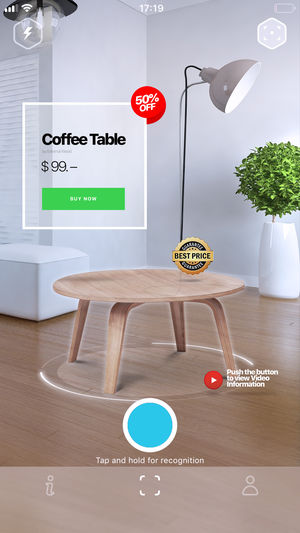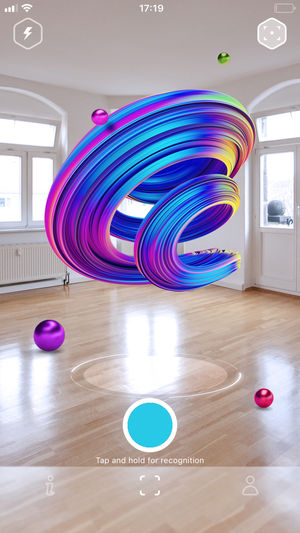Augmented reality (AR) has long sounded like a wild, futuristic concept, but the technology has been around for years. AR is all about superimposing computer-generated images on top of your view of reality, thus creating a composite view that augments the real world. AR apps run the gamut from interactive map overlays and virtual showrooms to massive multiplayer skirmishes. More and more, ARKit apps are rolling out on Apple’s iOS, and while Google has killed off Project Tango, ARCore is the future of Android.
The available selection of AR apps is diverse. Here are our top picks for the best AR apps available, whether you’re searching for iOS or Android apps.
The best AR apps for your phone
Froggipedia ($4)
While definitely not for the more squeamish, Froggipedia is an excellent educational tool for anyone who really doesn’t like the idea of dissecting a real frog in the name of science. Froggipedia helps you to explore and experience the unique and fun lifecycle of a frog, from its start as a single-celled egg to eventually becoming a fully grown frog. The app gives you the ability to take a frog apart, or take a transparent view of a living frog. Use your Apple Pencil or finger to dissect your frog further and get a closer look at individual organs and systems within — all without harming an actual frog. Unfortunately, for Android users, this app is currently for iOS only.
BBC Civilisations AR
Education is a great use for augmented reality, and it’s apps like this one that are really starting to pave the way for an AR-centric future. The Civilisations AR app from the BBC gives you the ability to admire various historical artifacts, locating, rotating, and resizing them as you see fit. There’s an extremely handy tutorial when you first start the app, which guides you through checking out an Egyptian mummy, hearing about its history, and even seeing inside it with an X-ray function. There are more than 30 historical items for you to admire, explore, and photograph in your living room. This is a great app for anyone interested in history, or those seeking a sneak peak at the likely future of museums.
SketchAR
There’s a little artistry in everyone, but not everyone has the time to sit down and practice drawing hands for hours and hours. Why not cheat a little? SketchAR is essentially AR tracing — plot a couple of circles on a piece of paper and choose a sketch, and SketchAR will project that image onto the paper, allowing you to trace around it. It’s not exactly tracing, as you’ll struggle to properly match the lines perfectly, but it works very well if you’re looking to practice specific drawing techniques.
SketchAR can be a little awkward — holding a phone in one hand and drawing with the other is not exactly a natural position — but it’s worth a try. It works with small pieces of paper on most ARCore-capable phones. It’s available for Android, iOS, and Microsoft’s HoloLens headset.
Mondly
Want to learn a new language, but never feel like you have the time? Mondly is one of the best ways to learn a new language, and since it’s on your phone, you can learn on the go. With 33 different languages for you to choose from and daily exercises to keep you learning, you’ll be chatting in a different language in no time at all.
Mondly hasn’t been slow to adopt new tech. There’s a VR version of the app for the Gear VR — and more excitingly — AR tech is built into the main app. Tap the AR button, and you’ll be asked to find a flat surface like a floor. Once that’s detected, the app will ask you to plonk down your AR teacher, and she’ll then begin your lesson, bringing in examples of the words as a memory aid. While it may not be something you engage in every day, the AR side of Mondly is a fun little addition that can shake up your language-learning experience.
Pokémon Go
It wouldn’t be a list of the best AR apps without mentioning Niantic’s Pokémon Go, a game that quickly captured everyone’s attention and given them a reason to go out into the world, walk around, and catch Pokémon. The game uses GPS to mark your location and move your in-game avatar, while your smartphone camera is used to show Pokémon in the real world. For the most part, it works, provided the game hasn’t crashed or frozen. There aren’t a lot of instructions when you first start, or information regarding game mechanics like the colored rings around wild Pokémon, but thanks to the nature of the internet, figuring out what to do isn’t that tough.
Players of the original Ingress, another Niantic creation, will see many similarities between the developer’s two games, right down to the locations marked as Pokéstops and gyms. So far, the game has received multiple updates, including trading, raids, and player-versus-player battles. And of course, hundreds of new Pokémon have been added. Niantic is set to continue updating the game to improve its performance and add new features, so we imagine Pokémon Go will stick around for a good, long while.
Ink Hunter
Ink Hunter is the app you should use when deciding on a tattoo and where to put it. The app lets you try out premade tattoos, as well as your own designs, and they can be oriented in whatever position you like and placed on any part of the body. Tattoos placed on the body using the camera look as close to real life as you’re going to get — without actually going under the needle that is — and that’s all thanks to the in-app editor and the way Ink Hunter renders tattoos. The app previously only supported black-and-white tattoos, but its latest update added support for color tattoos as well, meaning you can get a better picture of what the design will look like before you make it permanent.
WallaMe
WallaMe lets you leave hidden messages in various locations around the world that can only be read by other people using the WallaMe app. When using the app, you can take a picture of a nearby wall, street, or sign, then use the in-app drawing and painting tools to create your own special messages. You can also attach pictures to the areas you’ve chosen, if only to prove you were actually there. The augmented reality aspect really comes into play when you’re in a location that has a hidden message, but it can only be found by using WallaMe and your device’s camera. Messages can be made private, too, so that only friends using the app can see them, or they can be made public for everyone to discover.
WallaMe’s biggest strength also works against it, in a way. Those who aren’t aware of the app’s existence, or those who don’t regularly use it, may never see the clever messages created by others. But fans of the app may want to keep it that way, in order to maintain the feeling of exclusivity.
Google Translate
Google Translate isn’t strictly an AR app, but it does have one AR feature that’s incredibly useful for translating text. That particular feature is part of the app’s camera mode. Simply snap a photo of the text you don’t understand, and the app will translate the text in your photo in real time. When connected to Wi-Fi, the app supports a vast number of languages, but users can also download a number of language packs if they want to continue using the instant translation feature while offline or without a cellular connection. Next time you take a trip to a country with a language you aren’t fluent in, Google Translate could be your best friend, and the only thing that will keep you from getting lost in a strange land.
Amikasa ($1)

Amikasa helps you style your room and figure out your desired layout before you ever buy a piece of furniture. Using your iPhone or iPad’s camera, you can easily walk around your bedroom, kitchen, work office, or any other room you decide to furnish, and place 3D models of various items to see how they look, or to discover their ideal placement. This includes the ability to tweak the color, because maybe that cherry red chair suits the room better than the peach. The app uses name-brand items, which you can buy while using Amikasa, and if you’re ever unsure of your own style, your augmented rooms can be shared with friends and family through the app. The most recent update also added more kitchen faucets, cabinets, burners, and wallpapers, giving you even more options to design your perfect room.
Unfortunately, there’s no Android version available yet, but the Ikea Place and Overstock apps can offer similar functionality.
AR games and entertainment
Knightfall: AR

What genre of games is better suited to AR than battle strategy? Knightfall: AR puts players in the shoes of the Knights Templar, as they defend Acre from enemy Mamluk warriors. You place the battlefield down on any flat surface near you, and your viewpoint then acts as a targeting reticule, allowing you to fire arrows and catapults at enemy units as they work their way toward your walls. Killing enemies earns gold that can be spent on defenses and warriors to push the invaders back. Beating levels of the campaign also unlocks animations for the game’s Photo Mode, which lets you plonk down characters from the game for your own amusement.
It’s not perfect though — it’s a bit buggy, and we found the battlefield sometimes scooted away from us. It also started lagging once more units were placed on the battlefield. But regardless of that, this is a fun little game to take up some of your time, and a great indication of the future of AR gaming.
Just a Line
It’s not just independent developers who are having fun in AR — Google is too. Just a Line is one of the standouts of Google’s AR Experiments project, and while the premise is simple, it’s a lot of fun to play with and a great starting point for seeing what AR can potentially do. Boot up the app and it’ll take a moment to calibrate the space in front of you. Once done, hold your finger on the screen to draw and sketch out whatever you like. When you’re done, take a step back to admire your work. Then take a step around it and admire it in full 3D space, since it’s fully rendered in a 3D point in space. It’s really fun tech, and by moving around, you can vary the results, stretching lines out as you move. It’s not particularly thought-provoking, and it doesn’t have much use outside of just drawing in the air — but it’s fun to play with, and you can even shoot short videos to share with your friends.
Ingress Prime
Ingress was Google’s first entry into the AR game market, and now you can play the upgraded Ingress Prime. The game is an MMO that splits players into two factions — the Enlightened and the Resistance — and has them fight for control of virtual territories in a giant game of king of the hill. Players gain a material called Exotic Matter (XM) by walking around, and can use that XM to take over virtual portals. When three or more portals are taken over by either team, they gain control of the area between the portals. It’s a comprehensive strategy title at its core, heavily rooted in science fiction and bolstered by a continuous open narrative while offering the most in-depth social experience of any AR app on our list.
Genesis Augmented Reality
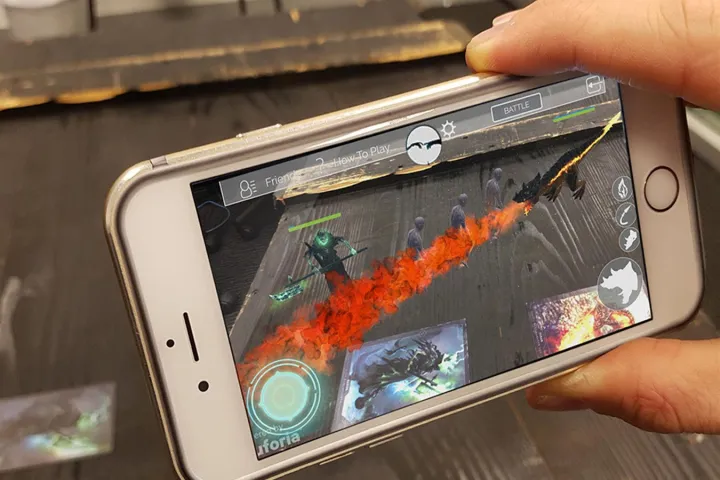
Ever wished that you could slap a piece of paper down on a table and watch as the monster contained within unfolds and fights other monsters? Yeah, we’re essentially describing Yu-Gi-Oh! there, but we’re also describing Genesis Augmented Reality. One of the biggest successes of all time on Kickstarter, Genesis Augmented Reality puts you in the shoes of a Riftlord — a mortal imbued with the powers of Genesis to end the evil influence of Rharkon by summoning powerful entities to defeat tainted dark beings.
Although the developers had initially planned a pretty expansive game, sadly it looks like it hasn’t been updated since 2018, and there are reports of players being stuck in an endless loop trying to authenticate the app. Nonetheless, if you can get it to work, it’s a pretty cool experience — although you’ll need a printer to print off the AR anchor that spawns your hero.
Zombies Go
With the popularity of The Walking Dead TV show and graphic novels, you may sometimes find yourself wondering how you would fare in the zombie apocalypse. Zombies Go doesn’t give you specific answers for that particular thought, but it does let you fight zombies while walking around outside, waiting for the bus, or even while shopping for groceries.
You may have noticed the “Zombies Go” name resembles that of Pokémon Go, and you wouldn’t be completely wrong to expect some similarities — mostly, it’s the concept of holding your phone up, seeing a creature, and choosing how to deal with it. If you do get tired of fighting the undead, though, you can turn on the game’s safe mode to keep from being attacked.
Quiver
Given smartphones are more tailored for adults than adolescents, the staggering dearth of AR content for children isn’t exactly surprising. Thankfully, Quiver (formerly known as ColAR Mix) works to bring your child’s 2D coloring books to life with animated images that spring directly from the Crayola-lined pages on your kitchen table. Although the app requires printed color pages, users can download one of several free coloring packs on the Quiver website, each of which encompasses everything from fire-breathing dragons and cuddly teddy bears to towering dinosaurs and wild stallions. Once drawn, users merely need to ensure the entirety of the page is viewable within their smartphone camera’s peripheral, thus allowing the image to come to life with accompanying music. Users can watch the animations from any angle once started, pause the content, or even zoom in and out as if viewing a real-life object. Despite being geared toward children, there’s no denying it’s a bit of fun for all ages.
Smash Tanks! ($1)
Smash Tanks! is an AR board game that lets you — you guessed it — smash tanks! The game uses an intuitive slingshot method to smash up your opponent’s tanks, and you can set up the AR board pretty much anywhere, from your desk at work to a table at home. Although you can play alone, it’s the multiplayer modes where you’ll have the most fun — and you can choose from local multiplayer, which uses one device and a pass and play system to game with a friend, or online, where you can either game with friends sitting next to you using multiple devices or with remote opponents through your Google Play Games account. You start with three tanks, and the aim is to catapult your tanks across the board and smash up your opponent’s tanks. The first to win two games is the victor, and with additional powerups, it can get pretty competitive. Smash Tanks! was initially available on both iOS and Android, but sadly only the iOS version is still available.
Holo
Remember the AR stickers on the Google Pixel? This app is pretty much where it all began. Holo allows you to take characters from both fictional worlds and the real world, and drag and drop them into your immediate surroundings; a process Holo refers to as “Holo-mixing”. Each of the characters, which range from YouTube celebrities to fictional characters, performs a range of set animations and sounds when placed in the world, and can be shrunk and expanded to match your ideal placement.
The actual execution can be a little glitchy, and the AR functionality isn’t without its bugs — you might find that the characters you’ve placed like to move with you, rather than letting you move around them — but as an app that’s available across both Android and iOS, it’s certainly an impressive endeavor nonetheless.
Other AR apps
Google Lens
Google Goggles is dead — long live Google Lens. Google Lens is the replacement for the long-neglected Google Goggles app, and thankfully for old users of that app, it still does most of the things Goggles was known for, and a lot more besides. Point Google Lens at an object and it’ll attempt to identify it. If it knows what it is, it can suggest places to buy it, or alternative products — or simply pull up a Google search for that item. It can identify plants, store phone numbers and dates on posters, or give you information about nearby landmarks.
Accessing Google Lens is pretty easy. You can either download the Android app below, access it from your Google Assistant, or access it from Google Photos. Sadly, iOS users don’t have access to the Lens app, but they can still access Lens through Google Photos.
AR Ruler
Here’s one of the simplest ideas for augmented reality — measurements. Using AR’s ability to gauge where 3D objects begin and end, it’s possible to measure that distance and display it easily. It’s not just about simple straight measurements, though — AR Ruler will also measure angles, volume, and area. It even has a function to create a room plan from your measurements. As you might expect, it’s not perfect, but it’s a decent enough tool to get rough measurements when you need them. Just don’t rely on it for anything that needs to be accurate — yet. Unfortunately, there’s no iOS version of this app yet, but there are similar apps with the same name that will probably work just as well.
Find Your Car with AR
We’ve all done it before — you finish up your grocery shopping and head out into the parking lot to make your way home, but unfortunately have no idea where you parked. Fortunately, Find Your Car with AR is an app specifically designed to help guide you to your hiding vehicle. Once the car’s location is set, the app creates a visible marker showing the car, the distance you are from it, and the direction you should walk to find it. We’ve found that it’s most useful for places like stadiums, convention centers, outdoor concert venues, and other crowded areas or those lined with massive parking lots. Users can also utilize the app to find their seats in large theaters and concert halls.
The freemium version of the software should suffice for most users, but the premium version does remove the ads and include additional tools for marking your favorite parking spot or specifying the arrow color. Find Your Car with AR may be an iOS exclusive, but Android users can always purchase the similarly-equipped AR Car Locator.
Augment
Visualizing furniture in its potential environment is one thing, but being able to visualize nearly any 3D model in AR is something completely different. Although somewhat complex, Augment is an app specially designed to boost sales, bring print to life, and visually see the possibilities at hand. Once users sign up with a free Augment Manager account, the app allows users to upload their own 3D images and trackers from applications such as Cinema 4D, Sketchup, Maya, and the like, and place the 3D models in a virtual environment using the camera on their iOS device. A steep learning curve accompanies some of the more advanced features, but said features also make the software more capable. It handles print content in a similar fashion to Layer, offering additional multimedia features with a simple camera scan, but the sheer ability to upload your own 3D content helps it edge out the competition when it comes to deciding where to put that recently-purchased display kiosk or building model.
Sun Seeker ($6/$10)
As the name might suggest, Sun Seeker is an app obsessively designed with one thing in mind: the enormous star position in the center of our solar system. The app provides both a flat view compass and a 3D, AR view, each detailing the sun’s solar path, maximum elevation, its hourly intervals, and its rise and set times, among other noteworthy data. Furthermore, the app presents the sun’s winter and summer solstice paths, and allows users to quickly view the sun’s current position in the sky, complete with marked hour points. Though users can choose from nearly any location on earth, the app also taps into your mobile device’s GPS and magnetometer, providing useful information for gardeners, photographerS, architects, real estate buyers, and anyone else looking to discover optimal lighting conditions and relative solar angles for a given location. Plus, users can even view the solar path for a chosen date. Needless to say, the Aztecs would be a wee bit envious.
SkyView ($2)
Staring up at the cosmos is something of a universal human experience. No matter where or who you are, we can all enjoy gazing up at the night sky (well, almost all of us). Now, no matter how experienced a stargazer you are, this app can grant you the combined powers of notable astronomers from throughout history.
No, there’s nothing sinister about it. By using your phone’s camera and a multitude of sensors, SkyView projects a grid of the known constellations, stars, and other stellar objects on your phone’s screen. Simply point it at the sky and you will be an expert in no time. A search function allows you to find crowd favorites, and a time-travel function conjures skymaps from the past, or even projects into the future. Follow the International Space Station as it travels across the sky, or simply watch Jupiter dawn, thanks to the sky trails. It’s available on a multitude of devices — and there’s even a companion app available for the Apple Watch.
The best part about these sorts of apps is that there are always alternatives. If you’re looking for something a little lower tech, then Google’s Sky Map is perfect. If you’re not convinced enough to immediately put down the $2, there is a free version of this app for Android devices, so you can try before you buy.
SpotCrime+
Sometimes obliviousness is a terrific thing, but that’s rarely the case when it comes to safety. With SpotCrime+, users can gather a wealth of real-time crime information and alerts for nearly any location in the United States, United Kingdom, and selected parts of Canada. SpotCrime+ pinpoints your location via your smartphone’s GPS. It pulls crime data from police departments, sheriff agencies, news media, and other sources. Crimes range from robberies and shootings to arrests and assaults. The app pinpoints each occurrence with its respective icon on a map. Users can set up automated alerts and search for crimes surrounding a specific address, which is helpful whether you’re traveling or steering clear of shady areas near home. You can also view occurrences in a list format with links to additional information. The app may not prevent crimes, but it will provide you with a comprehensive overview of the more dangerous avenues and times to be out and about in your neighborhood. As the official SpotCrime+ description says, “don’t let anyone take your mojo.”
Roar
Roar is an app that benefits consumers and businesses. However, this is for the people who will use it in their personal lives. For them, Roar is an AR shopping adviser that lets you take pictures of thousands of foods and drinks, learning everything there is to know about them. You can instantly source prices and ingredients, read reviews from other people, and even discover working coupons and promotions. You can compare products by price or retailer in Roar’s database. Conveniently, you can also purchase items from within the app itself. Another hot feature is the ability to scan a movie poster to quickly buy tickets to an upcoming showing. This is a huge convenience, you don’t even have to bother with navigating a full website. Roar is continually growing with its most recent update in June. They’re still growing, too. There are a ton more features on the horizon, with the promise to make it easier and more fun to use. Some highlights that are coming soon include new sounds and music, 3D objects, and animation.
We’re big fans of augmented reality technology, which continues to seep into all aspects of our lives. There are more than enough AR apps to explore whether you are an iOS or an Android user. You can discover all sorts of AR apps to make your day-to-day life more manageable or to simply pass the time. You have options ranging from a multiplayer game or a shopping app.
Augmented reality technology will make the way Amazon revolutionized consumer behavior seem like a thing of the past once it sets in. Some of the apps on our list already allow consumers to sample furniture in their homes before buying. As tech advances, this will become even more common with different types of goods.
The list of available augmented reality apps and their usefulness is on the brink of mainstream use. If you remember early incarnations like Google Goggles, more capable apps are replacing them. New ways to do our daily tasks and leisure activities are coming.

